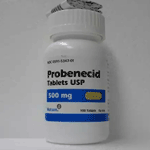Motrin - Comprehensive Usage Guide: instructions, indications, composition, side effects
Composition
- Active Ingredient: Ibuprofen
- Excipients: May include lactose, microcrystalline cellulose, croscarmellose sodium, magnesium stearate, colloidal silicon dioxide, and other inactive ingredients depending on the formulation.
Official Forms
- Motrin is available in various formulations, including:
- Tablets: Available in strengths such as 200 mg, 400 mg, and 600 mg.
- Chewable Tablets: Available in strengths suitable for pediatric use.
- Suspension: Available in a concentration of 100 mg/5 mL.
Pharmacological Group
- Motrin belongs to the pharmacological group of nonsteroidal anti-inflammatory drugs (NSAIDs), specifically propionic acid derivatives (ATC code: M01A E01).
Pharmacological Properties
- Pharmacodynamics: Ibuprofen exhibits anti-inflammatory, analgesic, and antipyretic properties by inhibiting prostaglandin synthesis through non-selective inhibition of cyclooxygenase (COX) enzyme activity. It primarily acts by reducing inflammation, pain, and fever associated with various conditions.
- Pharmacokinetics: Ibuprofen is well-absorbed from the gastrointestinal tract after oral administration, with peak plasma concentrations achieved within 1-2 hours. It undergoes extensive hepatic metabolism and is primarily excreted in the urine as metabolites.
Indications
- Motrin is indicated for the symptomatic relief of pain and inflammation in conditions such as:
- Osteoarthritis
- Rheumatoid arthritis
- Mild to moderate pain (e.g., headache, dental pain, menstrual cramps)
- Fever
Contraindications
- Motrin is contraindicated in individuals with:
- Hypersensitivity to ibuprofen or any component of the formulation
- History of allergic reactions (e.g., asthma, urticaria, angioedema) to NSAIDs, including aspirin
- Active peptic ulcer disease or gastrointestinal bleeding
- Severe heart failure
- Severe renal impairment (creatinine clearance <30 mL/min)
- Severe hepatic impairment
- Pregnancy (third trimester)
- Concomitant use with other NSAIDs or aspirin, due to the potential for additive adverse effects
Interactions
- Motrin may interact with various medications, including anticoagulants, antiplatelet agents, diuretics, ACE inhibitors, angiotensin II receptor blockers (ARBs), and selective serotonin reuptake inhibitors (SSRIs), potentially increasing the risk of gastrointestinal bleeding, renal toxicity, or cardiovascular events. Caution is advised when co-administering Motrin with these agents.
Specifics of Use
- Motrin tablets should be taken orally with a full glass of water, preferably with food or milk to minimize gastrointestinal irritation. The dosage and duration of therapy depend on the severity of the condition and the patient’s response to treatment.
Pregnancy and Breastfeeding
- Motrin should be avoided during the third trimester of pregnancy due to the potential risk of premature closure of the fetal ductus arteriosus. It is not recommended for use during breastfeeding, as ibuprofen may be excreted in human breast milk.
Impact on Motor Functions
- Motrin may cause dizziness or drowsiness in some individuals. Patients should be cautious when driving or operating machinery until they know how Motrin affects them.
Dosage and Administration
- The recommended dosage of Motrin for adults and adolescents over 12 years of age is 200-400 mg every 4-6 hours as needed, not exceeding 1200 mg per day.
- For children aged 6 months to 12 years, the dosage is based on body weight and should be determined by a healthcare provider.
- The suspension should be shaken well before each use and measured with an appropriate dosing device to ensure accurate dosing.
Overdose
- In case of overdose, supportive measures should be initiated as needed. Symptoms of overdose may include nausea, vomiting, abdominal pain, headache, dizziness, drowsiness, and gastrointestinal bleeding. Patients should seek medical attention if overdose is suspected.
Side Effects
- Common side effects of Motrin may include:
- Gastrointestinal disturbances (e.g., dyspepsia, heartburn, nausea)
- Headache
- Dizziness
- Edema
- Rash
- Serious adverse effects such as gastrointestinal ulceration, bleeding, renal impairment, cardiovascular events, and hepatotoxicity may occur rarely.
Storage and Shelf Life
- Motrin tablets and suspension should be stored at room temperature (20-25°C) in a dry place, protected from light and moisture. Check the expiration date on the packaging and discard any expired or unused medication.



